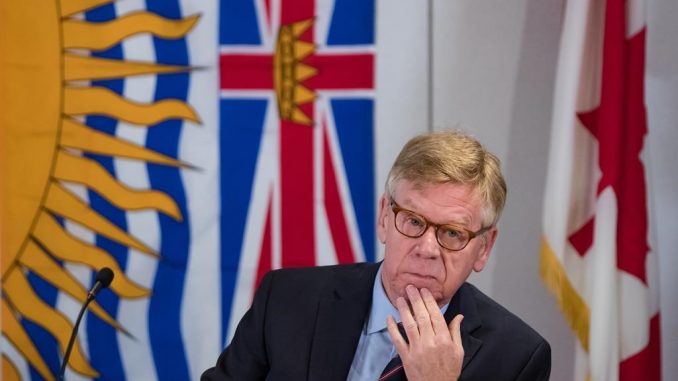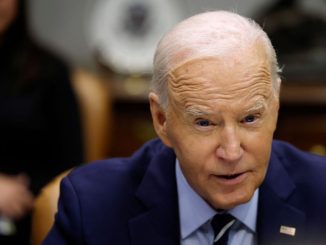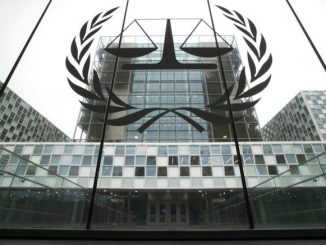

Following the testimony of former British Columbia premier Christy Clark, the inquiry into money laundering in the province has moved forward with testimony from former high-profile provincial officials.
The Cullen Commission recently questioned former attorney general Shirley Bond, former finance minister Mike de Jong, former assistant deputy minister of policing Kevin Begg, and former deputy minister responsible for gaming Lori Wanamaker. The commission also heard from current Attorney General David Eby, who helped set up the commission.
Begg was questioned on his management of provincial policing, particularly the steps that were taken to prevent the criminal abuse of ports of entry, while the remaining witnesses were questioned on their knowledge of suspicious financial transactions happening during their tenure.
In her testimony on April 22, Bond, B.C.’s former AG, said that in her portfolio she was focused on public safety as mandated by the premier. She added that she had no experience in the gaming industry, but the issue of money laundering had the attention of her Liberal government.
Bond said that gambling addiction, civil forfeiture, and gang violence were major concerns when the gaming file was part of her duties in 2011. She added that she implemented recommendations from a government report on anti-money laundering strategies as minister.
In response to Commission counsel Patrick McGowan’s question on whether she made a request to the Gaming Policy and Enforcement Branch (GPEB) or the British Columbia Lottery Commission (BCLC) following media reports of suspicious cash transfers in B.C. casinos, Bond replied that she did not. She said a previous provincial-commissioned review showed that there were adequate anti-money laundering measures already in place.
The review, conducted by Rob Kroeker of the province’s Civil Forfeiture Office in 2011, concluded that the province had appropriate measures to deal with criminal activity at B.C.’s casinos, especially money laundering, but recommended a task force be created to find out more about the issue.
Bond also expressed that she was not involved in the day-to-day operations of casinos and relied on expertise in the ministry. The gaming file was transferred from Bond’s portfolio to the finance minister in 2012.
Former finance minister de Jong said in his testimony on April 23 that he has no background in the gaming sector. He also said he was advised by an assistant deputy minister not to get too involved in day-to-day gaming operations.
“We have this unique political system where generally the minister is the least qualified person in the room amongst a group of experts,” de Jong said, adding that therefore the minister in charge is not always the best person to be probing or challenging if there are cases where agencies have differences of opinion about how to proceed.
De Jong also expressed his frustration at the view that his government was disinterested in the subject of anti-money laundering due to fiscal considerations.
“I was pretty hard-assed about expenses,” de Jong said regarding the BCLC.
De Jong denied that his government was lax on money laundering in order to facilitate revenue, saying that he never questioned the BCLC on revenue but only asked about its expenses. He said he did not want to “muck it up” and was not anxious to have more information than was necessary.
“I purposefully of course did not watch the testimony of former premier Clark,” said de Jong. “But when I get around to reading the transcript, I’m hoping you asked her what possessed her to assign the gaming file to the finance minister. Because I’ve never asked her and I’m very curious to know.”
In his testimony on April 21, Begg, former assistant minister of policing, said he thought there was considerable lack of federal funding for effective anti-money laundering operations in the province.
“We did negotiate an agreement with the federal government which provided some financial assistance to OCA [Organized Crime Agency] for some capacity at the port,” said Begg. “But it was far less than what originally had been there.”
Begg said he did not believe the gap was properly filled when the federal government disbanded the OCA over his objections.
Wanamaker, former deputy minister responsible for gaming, was questioned at the commission on whether Doug Scott, former general manager of the GPEB, had told her that there were hundreds of thousands of dollars in suspicious cash transactions occurring in the province’s casinos, or whether Scott had raised his belief that this cash may have been the proceeds of crime. Wanamaker replied that she could not recall.
This contradicts Scott’s testimony to the commission in February, when he said Wanamaker was indeed aware of his belief that the proceeds of crime were entering casinos.
The GPEB regulates all gambling in B.C. and is responsible for ensuring the integrity of gambling industry companies, people, and equipment. It is also tasked with investigating allegations of wrongdoing.
Current Attorney General Eby told the commission on April 26 that there were significant information gaps about suspicious cash at casinos during different briefings he had with the GPEB and BCLC. He said his conclusion was that the casino issue was significant and that the gaps between the GPEB and BCLC needs to be addressed.
The final report of the Cullen Commission is scheduled to be released in December this year. It was initiated in May 2019 in response to multiple reports on money laundering in B.C. that outlined how hundreds of million of dollars in illegal cash transactions affected the province’s real estate, luxury vehicle, and gaming sectors.
With files from The Canadian Press





Be the first to comment